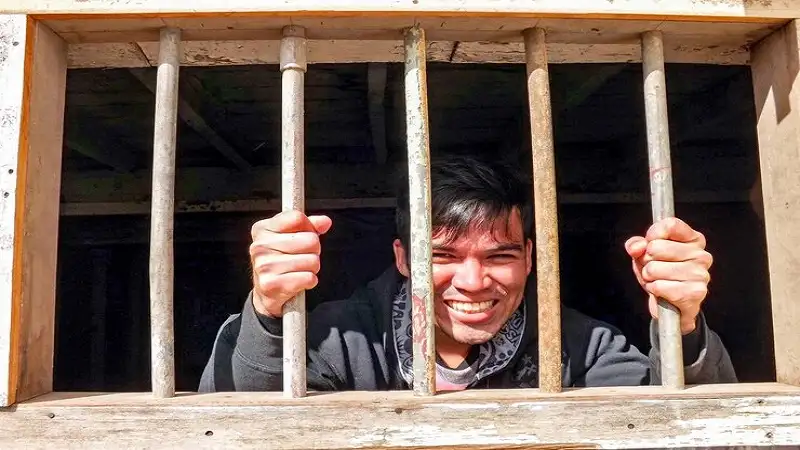
What are Kankakee Mugshots?
kankakee mugshots zone Mugshots, commonly known as arrest photographs, serve as visual records of individuals taken into custody by law enforcement agencies. These images are typically captured at the time of an arrest and are crucial within the judicial process. They not only assist in documenting the state of the accused during the arrest but also help in the identification of suspects in criminal cases. Kankakee mugshots hold particular importance within the local jurisdiction, as they contribute to the understanding of crime and justice in the Kankakee area.
The process of generating Kankakee mugshots involves capturing photographs in police facilities immediately after an arrest. Law enforcement officers take frontal and profile views to ensure a comprehensive documentation of the individual. These images are then stored as part of the public record, allowing for accountability and transparency within the legal system. In Kankakee, mugshots can provide insight into crime trends, enabling community members to stay informed about local safety concerns.
Access to Kankakee mugshots is governed by laws surrounding public records. Under the Freedom of Information Act, these images are often accessible to the public, facilitating the pursuit of information by citizens and media outlets. However, the legality of accessing mugshots can vary by jurisdiction, and some states have implemented restrictions to protect individuals from harassment or reputational damage after being arrested. Despite this, mugshots remain a valuable resource for understanding local crime and maintaining transparency in law enforcement.
Overall, Kankakee mugshots represent more than just images; they signify a pivotal junction in the criminal justice system, where the rights of the accused, public safety, and the diligent pursuit of justice converge.
The Importance of Kankakee Mugshots Zone
The Kankakee Mugshots Zone serves as a vital resource that fosters transparency within law enforcement and enhances public safety in the community. By providing access to mugshots and related information, this platform allows residents to stay informed about ongoing criminal activities in their area. Transparency in law enforcement practices builds trust between the community and police, ensuring that residents are aware of the measures being taken to maintain safety and security.
One of the fundamental implications of the Kankakee Mugshots Zone is the promotion of community awareness regarding local crime. By having the ability to view recent arrests and criminal charges, individuals gain insight into the types of offenses occurring nearby. This knowledge empowers residents to engage in proactive discussions about safety, thereby enhancing community vigilance. As a result, citizens are more likely to cooperate with law enforcement in reporting suspicious activities and participating in neighborhood watch programs, ultimately contributing to a lower crime rate.
Furthermore, the Kankakee Mugshots Zone functions as a deterrent for potential offenders. When individuals are aware that their actions are being documented and made accessible to the public, the likelihood of engaging in criminal behavior diminishes. The visibility of mugshots raises awareness that law enforcement is vigilant and active, reinforcing the message that crime will not be tolerated in the community.
Moreover, the accessibility of this information plays a crucial role in educating residents about their legal rights and the judicial process. By familiarizing the community with the nature of arrests and charges, individuals can better understand the implications of criminal justice, fostering a more informed populace that can navigate these systems effectively.
Overall, the Kankakee Mugshots Zone stands as a significant tool for promoting safety, transparency, and community engagement, ultimately enhancing the quality of life for all residents.

How to Access Kankakee Mugshots Zone
Accessing the Kankakee Mugshots Zone can provide valuable insights into the local criminal justice landscape. To begin your search, it is essential to utilize a combination of official government websites and reputable third-party services. Start with the Kankakee County Sheriff’s Office website, which often maintains updated records and publishes mugshots related to recent arrests. This official source ensures that the information retrieved is accurate and legally compliant.
In addition to government resources, various online databases offer mugshot resources and criminal records. Some of these websites compile information from multiple jurisdictions, including Kankakee, making them a comprehensive option for researchers or individuals seeking insights. However, caution is advised while navigating these third-party services, as the accuracy and legality of the data can vary significantly. Always verify the credibility of the website you are using.
When searching for mugshots, it’s crucial to be aware of privacy rights and ethical considerations. Many individuals whose mugshots are displayed may not have been convicted of a crime, and circumstances surrounding their arrests should be considered. Therefore, understanding the legal context of accessing and sharing mugshot data is imperative. Some states offer laws that limit the use of mugshots for commercial purposes, emphasizing the need for responsible use of this information.
In conclusion, the Kankakee Mugshots Zone can be accessed effectively through a mix of official sites and reliable online resources. Remaining mindful of privacy and ethical implications will ensure that the information is used appropriately and responsibly, fostering a more informed perspective on criminal records in the Kankakee area.
Controversies and Ethical Considerations Surrounding Mugshots
The publication of mugshots has been a contentious issue, raising numerous ethical concerns and sparking debates about its potential ramifications on individuals and communities. In the Kankakee mugshots zone, as well as elsewhere, the availability of such images often leads to significant stigmatization of those who have been arrested, regardless of whether they were ultimately convicted. This public exposure can disproportionately affect individuals’ personal and professional lives, leading to difficulties in finding employment or housing and fostering a climate of shame and judgment.
kankakee mugshots zone One prevalent argument against the dissemination of mugshots is that it perpetuates a culture of public shaming. Critics contend that these images fail to account for the presumption of innocence, failing to distinguish between those who have merely been arrested and those who have been convicted of a crime. The emotional and psychological toll on the individuals portrayed can be severe, leading to feelings of hopelessness and ostracization. Furthermore, the rise of mugshot websites, which often charge fees for the removal of photos, raises questions about the motivations behind their publication, where profit can take precedence over ethical considerations.
To address these concerns, various reforms have been proposed. Policymakers and community leaders have been encouraged to examine the regulations surrounding the publication of mugshots, promoting legislation that protects individuals from the rampant exploitation that can result from these images being posted online. Discussions around the potential for anonymizing or restricting access to mugshots have emerged, focusing on a balanced approach that respects public interest while also mitigating harmful effects on individuals. Emphasizing rehabilitation and understanding within communities can pave the way for more compassionate treatment of individuals who find themselves in the Kankakee mugshots zone, ultimately fostering a sense of dialogue and reform rather than stigmatisation.



